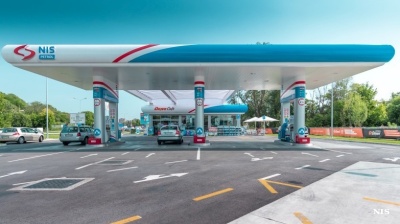Panama has moved to impose stricter rules on ship-to-ship (STS) oil transfers in response to growing international scrutiny over its role in facilitating sanctions evasion. The country’s maritime authority now requires all Panama-flagged vessels above 150 gross tonnes to notify authorities 48 hours in advance of any planned STS operations. The move is aimed at increasing oversight of the so-called shadow fleet—vessels involved in transporting oil from sanctioned states like Russia and Iran.
The notification must include detailed technical and logistical information: identification of participating vessels, coordinates, timing, oil type and quantity, and whether the operation will take place while anchored or underway. Ships must also show compliance with MARPOL environmental regulations and retain digital acknowledgment of the plan onboard.
This new regulation comes as Panama faces increased criticism for the number of opaque tankers registered under its flag. The country maintains the largest ship registry in the world, with over 8,500 vessels. The fleet has attracted attention for its use by operators seeking to mask oil shipments in defiance of Western sanctions. In March, Panama revoked the registration of 128 vessels, most of them tied to Russia and Iran. That process has been accelerated—previously taking up to six months, now finalised in weeks.
The Panama Maritime Authority said the goal is to prevent the registry from being used for illicit activities. In February, the authority claimed 96.5% of its fleet complies with international maritime standards, following pressure from the United States and European countries.
Washington and Brussels have been pushing countries like Panama to step up enforcement. The US government has long criticised the use of flags of convenience to bypass sanctions, while President Donald Trump even threatened US military action over the Panama Canal amid concerns about foreign influence and dark fleet operations.
The European Union has taken parallel steps. Since December 2024, Brussels has rolled out three new sanctions packages targeting Russia’s oil shipping network. The 15th and 16th packages blacklisted a total of 153 vessels. In May 2025, another 189 vessels were added, bringing the total to 342. These ships are now banned from accessing EU ports or receiving maritime services.
Other enforcement efforts are underway. A twelve-country bloc including Germany, Sweden, and the UK agreed in late 2024 to require shadow fleet vessels to show valid insurance documents when transiting key maritime passages, including the English Channel and Danish Straits. In April, the European Commission extended that requirement to all vessels operating in European waters.
According to reports by Offshore Energy and Reuters, many shadow fleet tankers manipulate tracking systems or turn off transponders during STS operations to avoid detection. The vessels are often older, poorly maintained, and uninsured, raising concerns about environmental risks in addition to sanctions violations.
In Germany, one such vessel—the Eventin—was seized earlier this year on suspicion of carrying Russian oil in breach of EU rules implemented in the wake of Moscow's full-scale invasion of Ukraine. Meanwhile, the US Treasury continues to blacklist entities tied to the Iranian oil trade, pointing to intermediaries in China and the UAE.
Panama’s actions are likely to reduce registry revenues, with local officials estimating a $2mn shortfall. However, the country has signalled that reputational concerns and pressure from major trade partners outweigh the financial loss.
News

Serbia’s NIS posts 9-month net loss as US sanctions weigh on performance
NIS, majority-owned by Russia’s Gazprom Group, said it had operated in “extremely complex circumstances” after sanctions were announced by the US Treasury Department.

Nigeria's Heirs Energies' CFO on powering growth via sustainable, indigenous-led development
NewsBase speaks exclusively to Samuel O. Nwanze, Executive Director and Chief Financial Officer of Nigerian indigenous integrated oil and gas company Heirs Energies.

Brazil's Lula "horrified" as Rio police raid death toll reaches at least 130
Brazilian President Luiz Inácio Lula da Silva expressed shock at the fatalities from a massive police operation targeting Rio drug gangs that left scores dead, while residents and rights advocates accused authorities of summary executions.

Nigeria's NNPCL weighs technical equity partnerships to revive idle state-owned refineries
NNPCL is reviewing options to bring the Port Harcourt, Warri and Kaduna refineries back into meaningful operation, possibly by bringing in technical equity partners to upgrade or repurpose units.

_Cropped.jpg)

